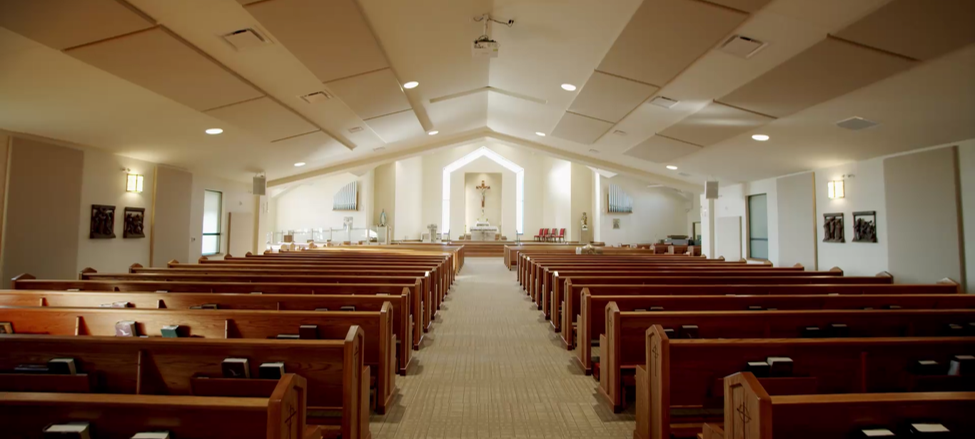
New St. Michael’s College Program Teaches Interfaith Dialogue
Since 2019, the Diploma of Interfaith Dialogue has been fostering discussion amongst members of the world’s major religious traditions. This new, unique joint venture from the Faculty of Theology at St. Michael’s College in the University of Toronto and the Office of Interreligious Dialogue, Archdiocese of Toronto is open to people of all faiths and it doesn’t require potential students to have a university degree to apply.
Below, Fr. Prakash Anthony Lohale, Director of Interreligious Dialogue at the Archdiocese of Toronto, and Anthony De Feo, Program Coordinator for the Diploma of Interfaith Dialogue, tell us more about this special learning opportunity.
1. Why was the Diploma of Interfaith Dialogue started in the first place?
As we know, the city of Toronto is a melting pot of various cultures, traditions, faiths, beliefs and values. The growing need for dialogue and conversation amongst those of various faiths, particularly between Catholics and people of other faith traditions, has always been an important area where the Church continues to encourage us to engage with our neighbour. A city as diverse as Toronto is an ideal place for engaging interreligious conversation.
With the introduction of the Diploma of Interfaith Dialogue, we can give students that opportunity, regardless of where they are coming from. Here at St. Mike’s, we are able and entrusted to carry forward the work and mission of the Scarboro Missions: The empowering of the laity.
2. Why is the Office of Interreligious Dialogue from the Archdiocese of Toronto collaborating with St. Mike’s on this interfaith diploma?
This idea of having a course on interreligious dialogue was germinating in my mind during the 2018 Parliament of World Religions in Toronto. But the archdiocese could not host this course on its own. However, St. Mike’s has the facilities and the staff, and some staff members there approached me with the idea of an interfaith diploma course. The Ecumenical and Interfaith Office also wanted to empower the laity to create Parish Interfaith Ecumenical Representatives (PIER) in each parish. Our goals were similar, so we started working together! Each year we will invite and encourage at least two parishes to send participants to the course. Hopefully, in the years to come we will have PIER’s from many parishes in the archdiocese.
3. What are some of the big-picture ideas or skills that students learn during their time in the program?
One of the things our students are introduced to is the spirituality of the many faith communities in Toronto and the surrounding area, bringing a greater understanding and appreciation for one another’s traditions. One of the ways this is highlighted in the program is through the course instructors. We have been very thoughtful in reaching out to the broader community to find the right fit for experts who teach our courses.
Another skill the students learn is the ability to communicate with those that may have a different point of view than they do, which brings about a fruitful discussion amongst our students and can lead to greater appreciation for another’s culture and/or faith tradition.
4. Is there a course or two that you are personally particularly excited about?
Many of our students have enjoyed the “Sacred Architecture” course. The instructor is very thought-provoking in his lectures and uses multimedia in a way that engages the students with various physical places of worship and architectural pieces, without even leaving the classroom.
The capstone courses, including “Christian Perspectives on Ecumenism and Interfaith Dialogue,” were well received. I also found a very good response to the course on “Principles and Practices of Dialogue.”
5. How will the winter 2021 classes operate with COVID-19 likely still being part of our lives then?
Unfortunately, we have had to make the hard decision to move our physical classes to a virtual format, much to the understandable disappointment of many of our students. They quite enjoyed the ability to dialogue and converse with one another, which is sometimes more difficult online. However, the students have already adjusted quickly to this different way of learning, and we continue to hope that we will be able to meet in person once again soon.
6. People reading this blog maybe wondering, “Are there people like me taking these classes?” Can you tell us a bit about the students who have been part of previous classes?
I think that because no prior education is required to take this diploma, it opens up the possibility of many people from all walks of life learning more about interreligious dialogue, whether you are a teacher, a professional, a ministerial leader or just someone who is interested in learning about other faith traditions. We have a multitude of various students who take our classes: Some for personal knowledge, some for the benefit of their work and some who just want to continue learning. I believe that if you are wondering, “Is there anyone like me taking these classes?,” the answer is a definitive yes!
7. For anyone who is interested in applying to the Diploma in Interfaith Dialogue after reading this blog, what practical information do they need to know now?
For anyone who may be interested in applying to the diploma or those who may want more information, please just send me (Anthony) an email and we can set up a time to discuss the program. You can also find it at the link below. We hope to welcome you to our program!
To learn more about the Diploma in Interfaith Dialogue offered by the Faculty of Theology at St. Michael’s College in the University of Toronto, please visit its website here.
